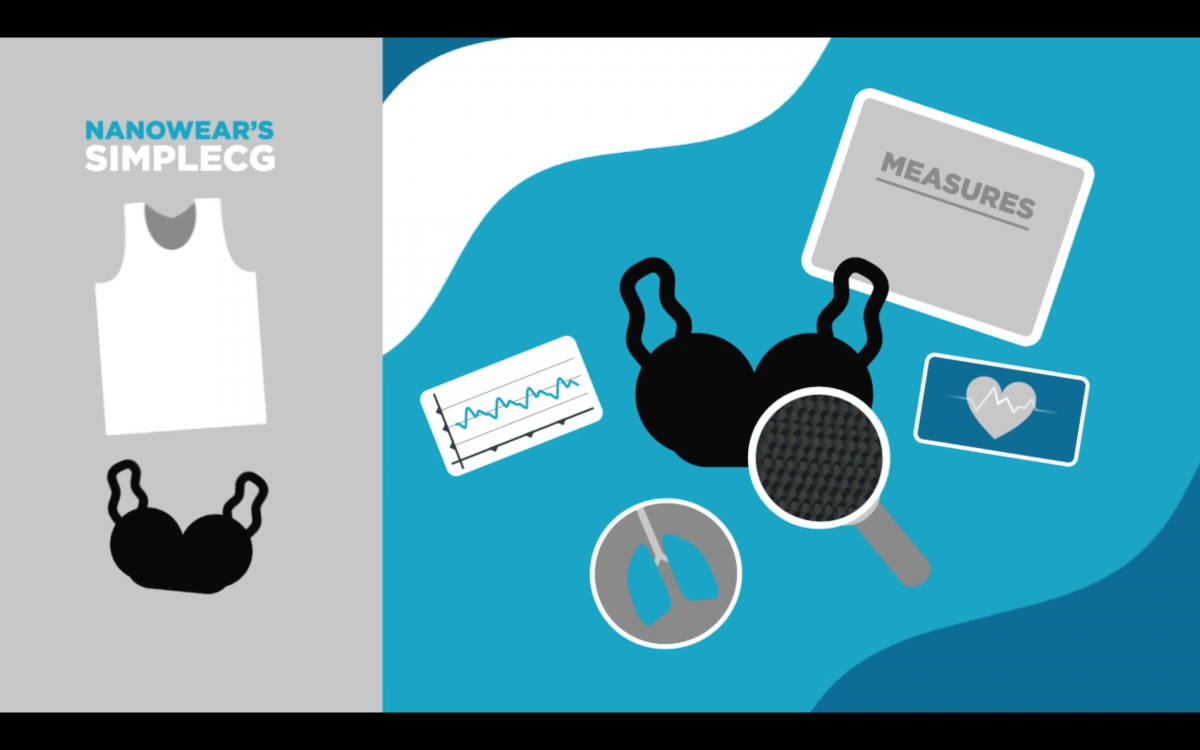 New York City-based Nanowear has received FDA clearance for SimpliECG, a "remote cardiac-monitoring undergarment". This is the first clearance for the company, which has been in talks with the FDA since 2015, according to a press release.
New York City-based Nanowear has received FDA clearance for SimpliECG, a "remote cardiac-monitoring undergarment". This is the first clearance for the company, which has been in talks with the FDA since 2015, according to a press release.
"This is a big milestone for our young company," Cofounder and CEO Venk Varadan said in a statement. "The FDA's decision not only positions us for commercial opportunities in remote cardiac monitoring, but more importantly, it provides accreditation of the company's one-of-a-kind, cloth-based sensor technology as medical-grade. This is the first step and foundation of what we believe to be an extensive array of applications for our nanosensor technology – including numerous other electrical, biometric and biochemical signals that can be measured directly from the skin without conductive gels, adhesives or skin preparation. The market of applications for healthcare alone is a multi-billion-dollar opportunity, but as we look beyond to consumer, industrial, clinical research, military and public sector applications, the addressable market expands exponentially."
Nanowear raised $1.5 million in a funding round led by the Social+Capital Partnership in September 2014. At the time, Varadan described the sensors as being built into a bra or undershirt. "Our textile-based nanosensors enable continuous, real-time monitoring to identify pathophysiological changes in dry or wet conditions," he said in a statement at the time. "It is a platform on which various sensors for cardiac health monitoring including real-time ECG, systolic / diastolic blood pressure, heart rate and respiratory rate are integrated into the fabric. The garment collects and transmits these diagnostic health signals wirelessly to a cell phone, computer or any connected device."
While other smart clothing companies have mostly targeted consumers, Nanowear hopes to differentiate itself by getting FDA clearance before going to market and establishing its sensors as medical-grade. Another way the company stands out is its advisory board, which includes EDventure Holdings CEO and noted angel investor Esther Dyson.
The company hasn't shared a launch date for the newly cleared product, but did say that it "will now focus its near-term efforts on product commercialization, strategic partnerships and continued development of complementary products and applications for chronic disease states."














